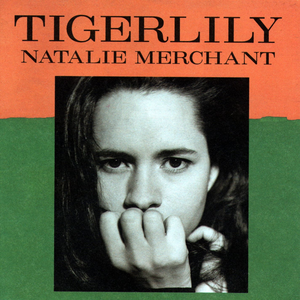
Tigerlily is the debut studio album by American singer-songwriter Natalie Merchant, released on June 20, 1995, following her departure from the alternative rock band 10,000 Maniacs.
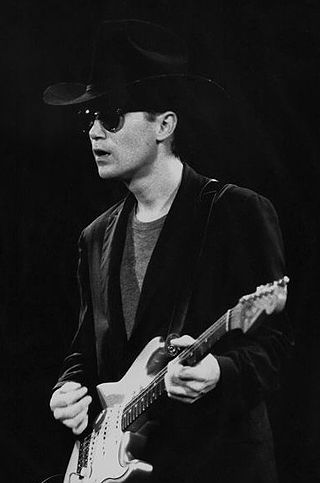
Marshall Howard Crenshaw is an American musician, singer, songwriter, and guitarist best known for hit songs such as "Someday, Someway," a US top 40 hit in 1982, "Cynical Girl," and "Whenever You're on My Mind." He is also the co-author of one of the biggest radio hits of the 1990s, the Gin Blossoms's "Til I Hear It from You." His music has roots in classic soul music and Buddy Holly, to whom Crenshaw was often compared in the early days of his career, and whom he portrayed in the 1987 film La Bamba.
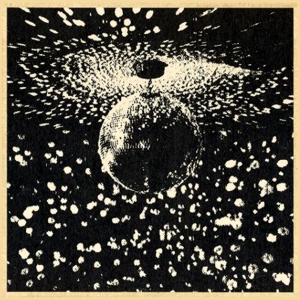
Mirror Ball is the 23rd studio album by Canadian musician Neil Young, and features members of American rock band Pearl Jam. It was released on August 7, 1995, through Reprise Records. The album has been certified gold by the RIAA in the United States.

Songs in the Key of X: Music from and Inspired by the X-Files is a 1996 compilation album released in association with the American science fiction television series The X-Files. The album contained a mixture of songs that were either featured in the series, or shared thematic elements with it. Songs in the Key of X peaked at No. 47 on the Billboard 200 album sales chart after its release. The album's title is a play on the title of Stevie Wonder's 1976 album Songs in the Key of Life.

Jackson Browne is the debut album of American singer Jackson Browne, released in 1972. It peaked on the Billboard 200 chart at number 53. Two singles were released with "Doctor, My Eyes", which peaked at number 8 on the Pop Singles chart, and "Rock Me on the Water", which reached number 48.
"Desperado" is a soft rock ballad by the American rock band the Eagles. The track was written by Glenn Frey and Don Henley, and appeared on the 1973 album Desperado as well as numerous compilation albums. Although it was never released as a single, it became one of Eagles' best-known songs. It ranked No. 494 on Rolling Stone's 2004 list of "The 500 Greatest Songs of All Time".
"Superstar" is a 1969 song written by Bonnie Bramlett and Leon Russell, that has been a hit for many artists in different genres in the years since. The best-known versions are by the Carpenters in 1971, Luther Vandross in 1983, and Sonic Youth in 1994.

"Take It Easy" is the debut single by the American rock band Eagles, written by Jackson Browne and Eagles band member Glenn Frey, who also provides lead vocals. It was released on May 1, 1972, and peaked at No. 12 on the Billboard Hot 100 chart on July 22, 1972. It was also the opening track of the band's eponymous debut album and has become one of their signature songs, included on all of their live and compilation albums. It is listed as one of The Rock and Roll Hall of Fame's 500 Songs that Shaped Rock and Roll.
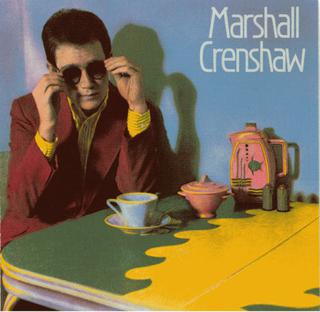
Marshall Crenshaw is the debut studio album by American musician Marshall Crenshaw. It was released on April 28, 1982, by Warner Bros. Records. Crenshaw, a performer in the musical Beatlemania, had begun to write songs for the album while staying in New York. The album was recorded with his backing band and producer Richard Gottehrer, engineer Thom Panunzio, and second engineer Jim Ball.

"Doctor, My Eyes" is a 1972 song written and performed by Jackson Browne and included on his debut album Jackson Browne. Featuring a combination of an upbeat piano riff coupled with lyrics about feeling world-weary, the song was a surprise hit, reaching number 7 on the Billboard Hot 100 in spring 1972, after debuting on the chart at number 80. Browne would not see the chart's Top 10 again until 1982's soundtrack hit "Somebody's Baby", although "Running on Empty" just missed the Top 10, reaching number 11. Billboard ranked "Doctor My Eyes" as the No. 92 song for 1972. In Canada, the song peaked at number four.

Good Evening is a 1989 album by Marshall Crenshaw. Although critically well-received, it failed to chart.

"You're My Favorite Waste of Time" is a song written and first released by American singer Marshall Crenshaw. His 1979 home demo of the song was released as the B-side of his 1982 hit "Someday, Someway" and is available on his compilations The 9 Volt Years and This Is Easy: The Best of Marshall Crenshaw.
"Jamaica Say You Will" is a song written and performed by American singer-songwriter Jackson Browne. It is the first song on his 1972 self-titled debut album.

Mary Jean & 9 Others is the fourth album by singer-songwriter Marshall Crenshaw. The album was produced by Don Dixon and features a return to the sounds of Crenshaw's earlier work after the country rock excursion of his previous album, Downtown.

"Someday, Someway" is a 1982 song by American rock musician Marshall Crenshaw. The song was released on his 1982 debut album, Marshall Crenshaw.

"Whenever You're on My Mind" is a 1983 song by American rock musician Marshall Crenshaw. The song was released on his 1983 album Field Day. The song, notable for its booming production, originally was written during the making of Crenshaw's debut album but was saved for his second album release. Crenshaw felt the song was his best to date, and the song was released as Field Day's first single.
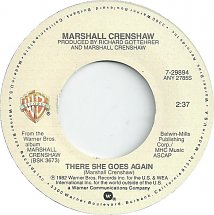
"There She Goes Again" is a 1982 song by American rock musician Marshall Crenshaw. The song was released on his 1982 debut album, Marshall Crenshaw. Lyrically, the song was written about seeing a girl from one's window as she passes by in a car, an image that Crenshaw later said was inspired by his youth.

"Cynical Girl" is a 1982 song by American rock musician Marshall Crenshaw. The song was released on his 1982 debut album, Marshall Crenshaw. Written as a satire on the "mass culture" that Crenshaw disliked, the song was not based on a specific girl.
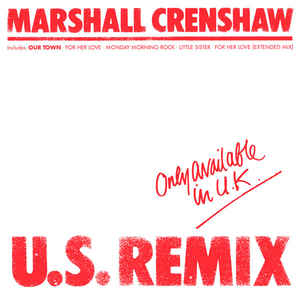
"Our Town" is a 1983 song by American rock musician Marshall Crenshaw. The song was released on his 1983 album Field Day. Written as an ode to Crenshaw's hometown at the time, New York City, the song features a melody inspired by Babs Cooper's version of "Honest I Do," a record that Crenshaw had heard in his childhood.
"Mary Anne" is a 1982 song by American rock musician Marshall Crenshaw. The song was released on his 1982 debut album, Marshall Crenshaw. Written from the perspective of trying to console someone, the song's title was not based on a specific girl. The song's hook was described by Crenshaw as going for a "hypnotic" effect and the song features layered 12-string guitar parts.
















